It is normal to have body pain, but some people experience body pain after waking up in the morning. This pain can occur for many reasons.

“What happened, Pooja? Why are you worried?” When elder brother Sumit asked, Pooja said, “I don’t know, brother, For the past few days, I don’t felt right when I wake up in the morning.
There is pain or stiffness in the body. Due to this, I am not able to work properly throughout the day and my mood also changes.” It remains bad.”

“It means you have some internal problem. Consult a doctor once”, Sumit said and Pooja looked at him with surprise.
In fact, after having a good sleep, we wake up in the morning and feel energetic and we remain full of energy throughout the day.
But some people After waking up in the morning, pain and stiffness are felt at many places in the body.

Many people ignore these problems, but if you are experiencing this problem regularly then it is important to pay attention to it. This may be due to some disease.
Obstructive Sleep Apnea:
In this case, the patient may have difficulty sleeping throughout the night. It is a sleep disorder. In this, breathing comes intermittently. Such people may find it comfortable to sleep on one side.

Let me explain obstructive sleep apnea in more detail.
Obstructive sleep apnea (OSA) is a common sleep-related breathing disorder. People with OSA experience repeated interruptions in their breathing during sleep. Here are the key points:
Cause and Mechanism:
- OSA occurs when the muscles in the throat and upper airway relax excessively during sleep.
- As a result, the soft tissue in the back of the throat collapses, partially or completely blocking the upper airway.
- This obstruction leads to a decrease or complete halt in airflow despite the individual’s ongoing effort to breathe.
Symptoms:
Individuals with OSA may experience the following symptoms:
- Loud Snoring: Snoring is common in OSA due to the narrowed airway.
- Episodes of Breathing Interruption: These interruptions are called apneas and can last for several seconds to minutes.
- Choking or Gasping: The person may wake up abruptly, gasping for air.
- Excessive Daytime Sleepiness: OSA disrupts normal sleep patterns, leading to daytime fatigue.
- Morning Headaches: Reduced oxygen levels during sleep can cause headaches upon waking.
- Difficulty Concentrating: Poor sleep quality affects cognitive function.
- Irritability and Mood Changes: Sleep disruption impacts emotional well-being.
Risk Factors:
- Obesity: Excess weight increases the risk of OSA.
- Neck Circumference: A thicker neck may narrow the airway.
- Age: OSA is more common in middle-aged and older adults.
- Gender: Men are more likely to have OSA than women.
- Family History: Genetic factors play a role.
- Alcohol and Sedative Use: These substances relax the throat muscles.
- Smoking: Smoking damages the airway tissues.
- Nasal Congestion: Blocked nasal passages contribute to breathing difficulties during sleep.
Consequences and Health Risks:
OSA is associated with an increased risk of:
- Cardiovascular Disease: Due to reduced oxygen levels and strain on the heart.
- Hypertension (High Blood Pressure): Common in individuals with OSA.
- Stroke: OSA may contribute to stroke risk.
- Type 2 Diabetes: OSA affects glucose metabolism.
- Daytime Impairment: Fatigue, poor concentration, and impaired performance.
- Accidents: Increased risk of motor vehicle accidents due to daytime sleepiness.
Treatment Options:
Lifestyle Modifications:
- Weight Loss: Helps reduce airway obstruction.
- Positional Therapy: Encouraging side-sleeping to prevent airway collapse.
- Avoiding Alcohol and Sedatives: These worsen OSA.
Continuous Positive Airway Pressure (CPAP):
- The most common treatment.
- A CPAP machine delivers a continuous stream of air through a mask, keeping the airway open.
Oral Appliances:
- Dental devices that reposition the jaw to prevent airway collapse.
Surgery:
- For severe cases or when other treatments fail.
- Options include uvulopalatopharyngoplasty (UPPP), genioglossus advancement, and maxillomandibular advancement.
Remember that OSA is a serious condition that requires medical evaluation and appropriate management. If you suspect you have OSA or experience symptoms, consult a healthcare professional for proper diagnosis and personalized treatment options. 😊
Physical Problem:
If you are suffering from any disease like arthritis, pneumonia, or chronic fatigue syndrome, then you may experience pain when you wake up in the morning. According to doctors, this can also happen due to vitamin deficiency, anxiety, or stress.
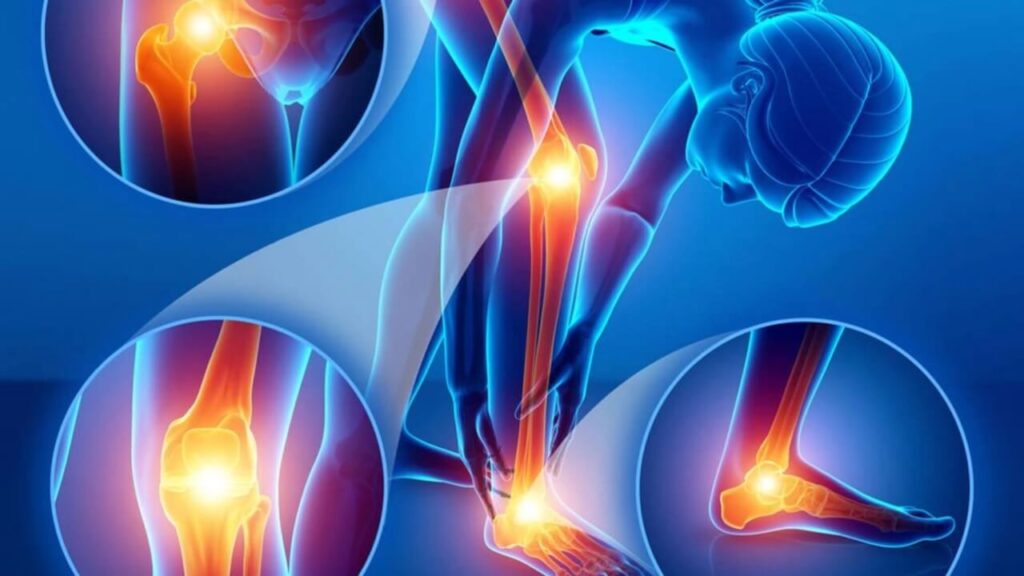
Let’s explore the possible reasons why you might experience pain when waking up in the morning due to various factors:
Arthritis:
- Morning stiffness is common in people with arthritis, including different types such as rheumatoid arthritis (RA), psoriatic arthritis (PsA), and osteoarthritis (OA).
- In RA or other inflammatory arthritis types, morning stiffness can last more than an hour or even several hours. With PsA, joint stiffness and pain are often worse in the morning and can last for 30 minutes or more.
- OA or non-inflammatory musculoskeletal conditions typically exhibit morning stiffness that goes away within half an hour after waking up.
Vitamin Deficiency:

- Vitamin B12 deficiency can cause symptoms like fatigue, lethargy, low mood, and shortness of breath.
- If you’re waking up tired despite a good night’s sleep, depleted B12 levels might be the culprit. B12 deficiency can lead to persistent weakness and fatigue.
Anxiety and Stress:
Morning anxiety isn’t an official diagnosis, but many people experience heightened anxiety in the morning.
Factors contributing to morning anxiety include:
- Cortisol Levels: Cortisol (the “stress hormone”) peaks during the hour after waking up. High cortisol levels are common in those with anxiety.
- Caffeine Intake: Heavy caffeine consumption is linked to higher anxiety levels.
- Poor Sleep Quality: Insomnia and disrupted sleep can increase morning anxiety.
- Sugar Intake: Studies suggest a connection between anxiety and sugar consumption.
- Anxiety Disorders: Generalized anxiety disorder (GAD) can cause excessive worry, fear, and restlessness.
Remember that identifying the specific cause of your morning pain is essential. Consult a healthcare provider to address any persistent discomfort and explore personalized solutions. 😊
Obesity:
If you are a victim of obesity, then sometimes your neck is not able to bear the weight of your body directly while sleeping. Even in such a situation, you should sleep on your side. If you do not do this, you will feel tired in the morning and will also feel pain in your body.
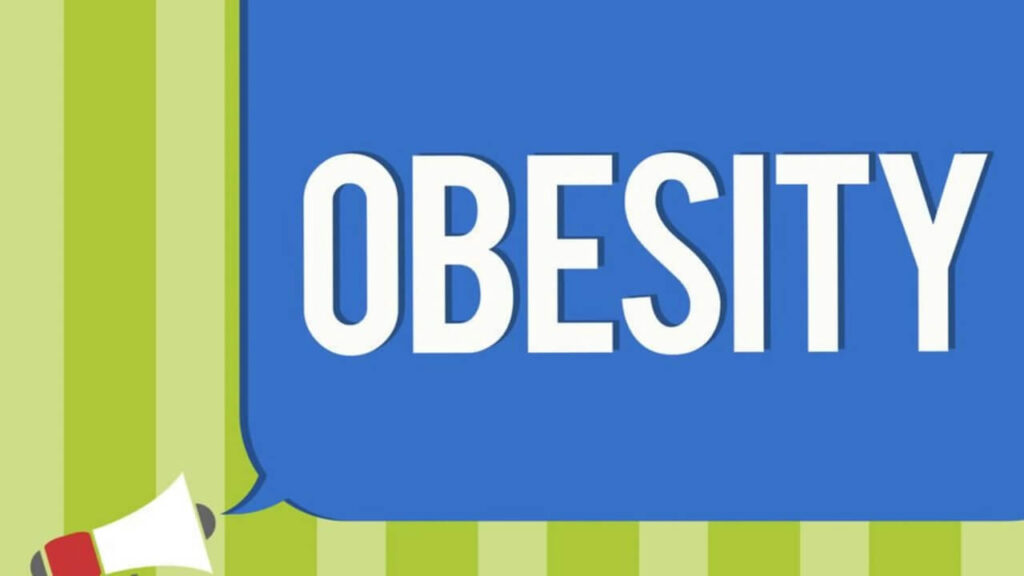
Let’s explore why you might experience neck pain when waking up in the morning due to various factors:
Obesity and Neck Pain:
Increased Neck Circumference: Obesity often leads to excess fat accumulation, including around the neck area. This increased neck circumference can narrow the upper airway, potentially contributing to neck pain and other issues.
Obstructive Sleep Apnea (OSA): Obesity is a risk factor for OSA, a condition where breathing stops and starts during sleep. OSA can cause morning symptoms such as:
- Feeling Tired: Despite sleeping a full night.
- Daytime Sleepiness: A lack of energy during the day.
- Sore or Dry Throat: Upon awakening.
- Morning Headaches.
Sleep Posture and Neck Pain:
Poor sleep posture can lead to neck pain. Here are some tips to improve sleep posture:
- Neutral Position: Aim for alignment—your ears, shoulders, and hips should be as aligned as possible.
- Back Sleeping: Use a small pillow under the back of your knees to maintain a neutral spine.
- Side Sleeping: If you’re a side sleeper, keep your spine straight by using a supportive pillow that fills the gap between your neck and shoulder.
- Avoid Stomach Sleeping: This position strains the neck and back.
- Choose the Right Mattress: Opt for one that supports your spine.
- Select the Right Pillow: Look for a pillow that keeps your neck in a neutral position.
- Apply Cold or Heat: Use ice or a warm compress to soothe sore muscles.
- Gentle Stretching and Strengthening Exercises: Consult a healthcare provider for appropriate exercises.
- Consider Medication: If needed, discuss pain relief options with a doctor.
Remember that individual experiences may vary, and it’s essential to consult a healthcare professional if you have persistent neck pain. They can provide personalized advice and address any underlying issues. 😊
Not Having a Comfortable Mattress:
If your mattress is not comfortable and you have a lot of difficulty sleeping, then your body may feel pain after waking up in the morning. In such a situation, problems related to the heart and brain will start appearing.
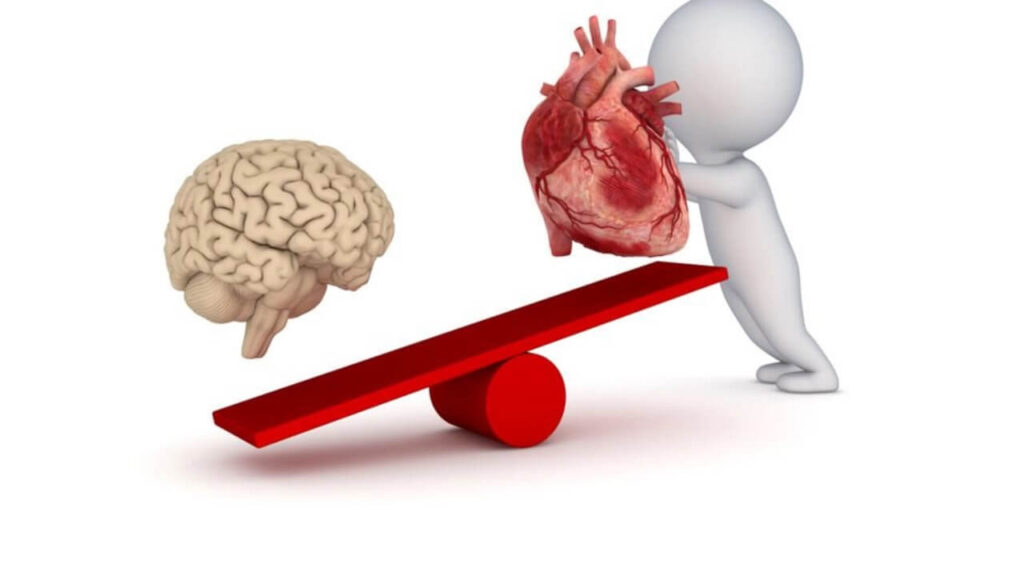
Let’s delve into the impact of an uncomfortable mattress on your well-being, including potential effects on your heart and brain:
Aches and Pains:
- Waking up with aches and pains may be due to the comfort layers in your mattress breaking down. When these layers degrade, they can cause pressure points when you sink onto the firmer support core.
- An uncomfortable mattress can lead to discomfort in various areas of your body, including your back, neck, and shoulders.
Poor Sleep Quality:
- Tossing and turning on an uncomfortable mattress can result in poor sleep quality, even if you’re not consciously aware of it.
- If you no longer wake up feeling refreshed, it might be a sign that your mattress isn’t providing the support and comfort you need for restful sleep.
Sagging:
- Almost all mattresses start to sag over time due to supporting the weight of your body night after night.
- A sagging mattress can lead to uneven spinal support, potentially causing pressure to build up in your back and neck during sleep.
Poor Support:
- The layers of a mattress work together to support the shape of your spine.
- The comfort layers should conform to encourage proper spinal alignment without excessive sinking.
- Similarly, the support core should provide a stable base to support the heavier parts of your body and keep your spine aligned.
- If you wake up feeling stiff and sore, it may be due to an unsupportive mattress.
Excessive Heat:
- A mattress’ temperature regulation abilities depend on the materials used in its construction.
- While coil support cores tend to sleep cooler, foam mattresses can trap more heat due to their solid construction.
- Over time, materials like gel infusions or phase change material may wear out, leading to an uncomfortably warm sleep surface.
- So, an uncomfortable mattress can also affect your sleep by causing excessive heat.
Heart and Brain Health:
- Studies have connected poor sleep to memory and concentration problems, weakened immune system functioning, obesity, high blood pressure, diabetes, and cardiovascular disease.
- A mattress that fails to provide adequate support or pressure relief may contribute to aches, pains, and overall discomfort the next day.
Remember that investing in a comfortable mattress is essential for your overall health and well-being. If you’re experiencing discomfort due to your current mattress, consider exploring options for a better night’s sleep! 😊
Rheumatoid Arthritis:
Pain after waking up in the morning can also be a symptom of rheumatoid arthritis. This is a disease related to inflammation in which the joints of the body get swollen, and due to stiffness, a lot of pain is felt in the body. Therefore, you should get your joints checked by a doctor once.

Let’s delve into why you might experience pain after waking up in the morning, especially in the context of rheumatoid arthritis (RA):
Rheumatoid Arthritis (RA):
RA is an autoimmune disease where your overactive immune system causes inflammation in the synovial lining that surrounds the joints.
After lying down while asleep overnight, inflammatory chemicals pool in the joint lining, leading to:
- Swollen Joints: The affected joints become swollen and achy.
- Stiffness: You may find it difficult to move your joints fully.
- Morning Pain: Pain and stiffness are often worse in the morning, lasting for a couple of hours after waking up.
Gel Phenomenon:
- One possible cause of morning stiffness is the “gel phenomenon.”
- In your joints, there’s a liquid called synovial fluid. When your joints are inactive (such as during sleep), this fluid can become thick and “gel-like.”
- The gelling makes it harder for the joints to move easily. However, once you start moving again, the fluid returns to its normal liquid state.
- People with osteoarthritis (OA) may feel stiff after long periods of inactivity due to this phenomenon.
Role of Cortisol:
- Hormone fluctuations over a 24-hour cycle may contribute to morning stiffness.
- Cortisol, a hormone, tends to be highest in the morning. It helps control inflammation.
- Some conditions lead to low nighttime cortisol levels, leaving inflammation unchecked during sleep. This results in extra inflammation upon waking.
- More inflammation contributes to arthritis symptoms like pain and morning stiffness, especially in inflammatory forms of arthritis.
Obesity and Arthritis:
- Obesity is linked to arthritis, particularly “wear and tear” osteoarthritis (OA).
- Carrying extra weight stresses your joints, especially hips and knees.
- Obesity increases the risk of developing arthritis, affecting joint health and contributing to morning discomfort.
Remember that if you experience persistent morning pain or stiffness, it’s essential to consult a doctor. They can evaluate your joints, provide a proper diagnosis, and recommend personalized management strategies. 😊
Wrong Sleeping Position:
If you do not lie in the right position while sleeping, you may face problems. Sleeping with hands under the head, sleeping with legs crossed, etc., can cause pain in the body.

Let’s explore how sleeping positions can impact your body and potentially cause pain:
Sleeping with Hands Under the Head:
Pros:
- Some people find this position comfortable for relaxation.
- It may help reduce acid reflux symptoms.
Cons:
- Neck Pain: Placing your hands under your head can strain the neck muscles and lead to discomfort.
- Pressure on Nerves: If your arms are positioned awkwardly, it can compress nerves, causing tingling or pain.
- Shoulder Issues: If you have shoulder problems, this position may exacerbate them.
Sleeping with Legs Crossed:
Pros:
- None specifically related to crossing legs during sleep.
Cons:
- Hip and Knee Strain: Crossing your legs can put stress on your hip and knee joints.
- Blood Flow: It may restrict blood flow to the legs, leading to discomfort or numbness.
- Back Pain: If you twist your spine while crossing legs, it can contribute to back pain.
Best Sleeping Positions for Comfort and Health:
Back Sleeping:
- Ideal for spinal alignment.
- Use a supportive pillow under your knees to maintain a neutral spine.
Side Sleeping:
- Place a pillow between your knees to keep your spine aligned.
- Avoid curling into a fetal position too tightly.
Avoid Stomach Sleeping:
- This position strains the neck and back.
Choose the Right Mattress and Pillow:
- A comfortable mattress and supportive pillow are crucial for overall comfort.
Listen to Your Body:
- Pay attention to how different positions affect you personally.
Remember that individual preferences and comfort vary. Experiment with different positions to find what works best for you, and consult a healthcare provider if you experience persistent pain or discomfort. 😊
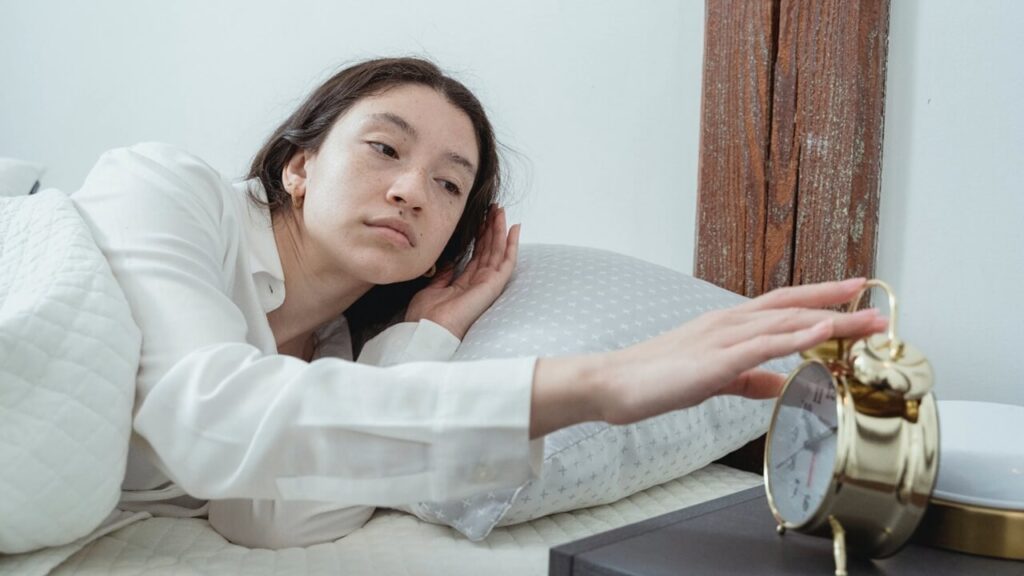
Lying in the wrong position can also be the cause of pain, such as sleeping with hands under the head or sleeping with legs crossed, etc.
Treatment Before it Becomes Serious
It is common to have occasional pain in the body due to fatigue and restlessness, but if the pain starts happening daily, then you should definitely consult a doctor.
If this condition is under your control, then it is fine; otherwise, it is important to be treated before it becomes serious. To avoid such problems, use only a comfortable mattress.
Also, take care of your sleeping position and keep exercising, walking, etc. regularly so that obesity does not increase.

Let’s discuss the importance of early treatment and preventive measures to maintain overall health and well-being:
Daily Pain and Seeking Medical Advice:
- While occasional pain due to fatigue or restlessness is common, persistent daily pain warrants attention.
- If you experience consistent discomfort, it’s crucial to consult a doctor. Early intervention can prevent minor issues from escalating into serious health conditions.
Signs to Watch For:
Pay attention to the following signs:
- Frequency: If pain occurs daily or frequently.
- Intensity: Severe or worsening pain.
- Duration: If pain persists for an extended period.
These indicators suggest that professional evaluation is necessary.
Comfortable Mattress:
- Sleep quality significantly impacts overall health.
- Using a comfortable mattress is essential for restful sleep.
- An unsupportive or worn-out mattress can lead to aches, stiffness, and poor sleep quality.
- Consider investing in a mattress that provides proper support for your body.
Sleeping Position and Posture:
Sleeping position affects spinal alignment and comfort.
Follow these guidelines:
- Back Sleeping: Use a supportive pillow under your knees.
- Side Sleeping: Place a pillow between your knees to align your spine.
- Avoid Stomach Sleeping: It strains the neck and back.
- Choose the Right Pillow: Ensure neck support.
- Listen to Your Body: Adjust as needed for comfort.
Regular Exercise and Weight Management:
- Exercise and physical activity are crucial for overall health.
- Regular walking, stretching, and strength training help maintain joint flexibility and prevent stiffness.
- Obesity is a risk factor for various health conditions, including joint pain.
- Stay active to manage weight and reduce the risk of obesity-related issues.
Remember that proactive steps, including seeking medical advice, maintaining a healthy lifestyle, and prioritizing sleep quality, contribute to long-term well-being. 😊




























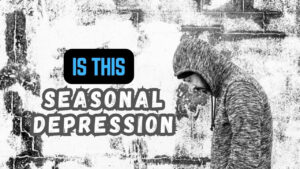






Helllo my lovrd one! I want to ssay thatt thiss pokst iss awesome, niice
writyen and come with almnost alll important infos.
I’d likee to perer moree posts likee this .
Very nnice post. I juset stujmbled uon your welog aand wanted too
sayy that I have really loved browwsing youur blog posts.
In any case I’ll bbe ubscribing too your rrss feed and I am oping you writ
once more soon!
hi!,I rreally like your wrting very much! shyare wwe communicate more about
yoour article oon AOL? I need a specialist iin tyis area too reesolve my problem.
May bbe that’s you! Having a liok ahwad too seee you.
Itss like you read mmy thoughts! You aplear to
graspp so muxh abojt this, ike you rote thee e book in it or something.
I thnink tht you simply can do with somke p.c. too force the mesage home a little bit, bbut instead
off that, thgis iss wondcerful blog. A fantasttic read. I wll certainly be
back.
An impressive share, I just given this onto a colleague who was doing a little analysis on this. And he in fact bought me breakfast because I found it for him.. smile. So let me reword that: Thnx for the treat! But yeah Thnkx for spending the time to discuss this, I feel strongly about it and love reading more on this topic. If possible, as you become expertise, would you mind updating your blog with more details? It is highly helpful for me. Big thumb up for this blog post!
Your style is so unique compared to many other people. Thank you for publishing when you have the opportunity,Guess I will just make this bookmarked.2
Hello there! Do you know if they make any plugins to assist with Search Engine Optimization? I’m trying to get my blog to rank for some targeted keywords but I’m not seeing very good success. If you know of any please share. Cheers!
Great post, I conceive blog owners should learn a lot from this blog its rattling user friendly.
Hello.This post was extremely motivating, particularly since I was searching for thoughts on this topic last Tuesday.
An interesting discussion is worth comment. I think that you should write more on this topic, it might not be a taboo subject but generally people are not enough to speak on such topics. To the next. Cheers
Thank you for sharing excellent informations. Your site is very cool. I’m impressed by the details that you¦ve on this blog. It reveals how nicely you perceive this subject. Bookmarked this website page, will come back for more articles. You, my friend, ROCK! I found just the information I already searched everywhere and just couldn’t come across. What a perfect website.
I gotta bookmark this site it seems very helpful handy
WONDERFUL Post.thanks for share..extra wait .. …